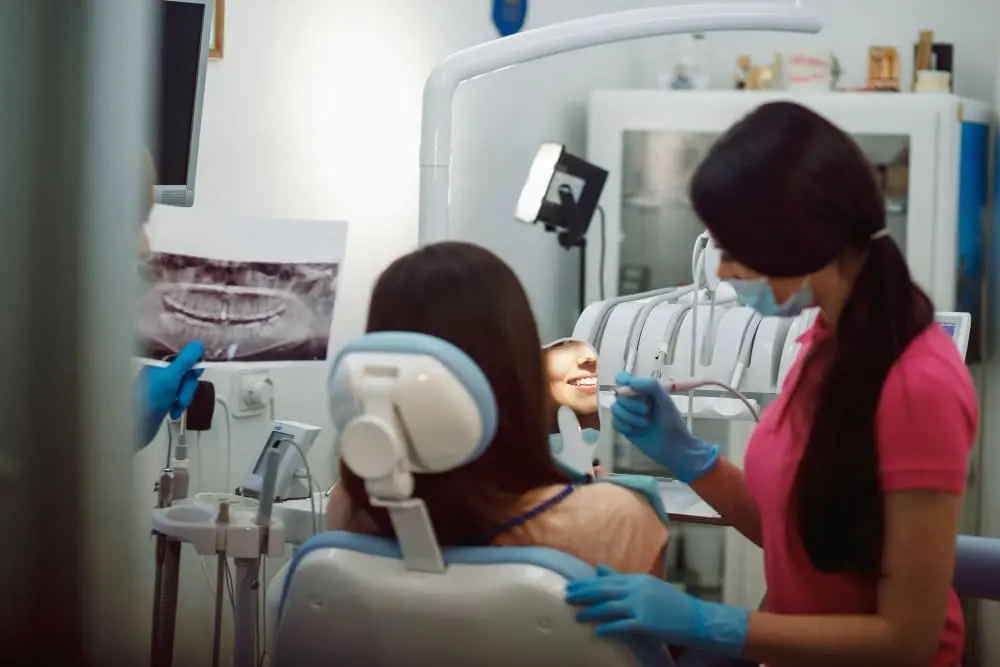

A woman’s life is joyfully and profoundly transformed during her pregnancy. Alongside all the preparations for the baby’s arrival, it’s crucial for expecting mothers to prioritize their own health, including dental care. Taking care of your teeth and gums during pregnancy is not only essential for your own well-being but also contributes to the overall health of your baby. Here’s everything you need to know about dental care during pregnancy, from common concerns to best practices.
Maintaining good oral hygiene is particularly important during pregnancy due to hormonal changes that can affect your gums and teeth. Pregnancy hormones such as progesterone and estrogen can increase the risk of developing oral health problems like gum disease and tooth decay. Furthermore, unfavorable pregnancy outcomes like preterm birth and low birth weight have been connected to poor dental health.
Therefore, paying attention to your dental health during pregnancy is crucial for both you and your baby.
You will be interested on: Smile Makeover in Dubai
Many pregnant women experience gingivitis, which is characterized by swollen, tender gums that bleed easily. This condition is caused by hormonal changes that exaggerate the body’s response to bacteria in plaque.
Changes in diet and oral hygiene habits during pregnancy can contribute to a higher risk of tooth decay. Cravings for sugary foods and morning sickness that leads to frequent vomiting can expose teeth to more acids, which can erode enamel and lead to cavities.
Though benign, some pregnant women may develop pregnancy tumors on their gums, usually during the second trimester. These growths are swollen, red lumps that bleed easily but are generally painless and resolve after childbirth.
Keep reading: Teeth Cleaning Cost in Dubai
Taking care of your teeth and gums during pregnancy involves adopting good oral hygiene habits and visiting your dentist regularly. Here are some tips to maintain optimal dental health:
Using a soft-bristled toothbrush and fluoride toothpaste, brush your teeth at least twice a day. To get rid of plaque from in between your teeth and along the gum line, floss every day.
Inform your dentist about your pregnancy and attend regular dental check-ups for cleanings and exams. Routine dental care is safe during pregnancy and can prevent oral health issues from worsening.
Opt for nutritious foods that are low in sugar and high in essential nutrients like calcium, which supports dental health. Snack on healthy options like fruits, vegetables, and dairy products.
If morning sickness causes frequent vomiting, rinse your mouth with water or a fluoride mouthwash to neutralize acids and protect your teeth from erosion. Avoid brushing immediately after vomiting to prevent further damage to enamel softened by stomach acids.
Drink plenty of water throughout the day to keep your mouth hydrated and wash away food particles and bacteria that can cause plaque and decay.
You will be interested on: Dental Clinic in Dubai
Some dental treatments can be safely performed during pregnancy, especially if they are necessary to maintain oral health. These include:
Professional dental cleanings help remove plaque and tartar buildup that regular brushing and flossing may miss.
If you experience dental pain, infection, or other urgent issues, seek dental care promptly. Local anesthesia and antibiotics can be safely used when needed.
If necessary, dental X-rays can be performed with proper shielding to minimize radiation exposure to the fetus.
Inform your dentist about your pregnancy to avoid medications that may not be safe during pregnancy. Local anesthesia and antibiotics prescribed by your dentist are generally safe when used appropriately.
Keep reading: Dental Clinic in Barsha Heights Tecom
Certain elective dental procedures may be postponed until after childbirth to minimize any potential risks. These include cosmetic procedures like teeth whitening and non-urgent treatments that can be safely delayed.

Taking care of your dental health during pregnancy is vital for both you and your baby. By maintaining good oral hygiene habits, attending regular dental check-ups, and seeking prompt care for any dental issues, you can reduce the risk of developing oral health problems during pregnancy. Remember that dental care is safe and important during pregnancy, and your dentist is your partner in maintaining a healthy smile throughout this transformative time in your life.
Incorporating these practices into your daily routine will not only benefit your oral health but also contribute to your overall well-being during pregnancy. By prioritizing dental care, you’re investing in a healthier start for both yourself and your baby.